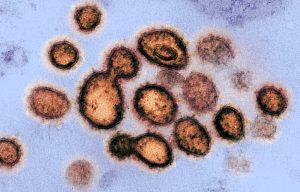As falling COVID-19 caseloads and rising vaccination numbers give the global community hope that there is an end in sight for the pandemic, the negative impacts of the coronavirus continue to grow for people living in areas affected by violent conflict. New estimates from UNICEF indicate that tens of millions of people in conflict-affected regions are grappling with acute malnutrition and a lack of medical care, both of which have been severely exacerbated by the coronavirus crisis.
One of the biggest impediments to an improved response is that conflict-affected communities often hesitate to cooperate with governments due to an ingrained lack of trust. Community skepticism hampers the government’s ability to undertake relief efforts like testing, treatment, and vaccination. For example, it took many decades for mass vaccination campaigns against polio or measles to overcome hesitancy and distrust in places with ongoing violence or forced migration. Given the acute nature of the COVID-19 emergency, much more rapid action is needed.
Encouraging new research from the Philippines indicates that it may be possible to overcome these trust gaps and improve COVID-19 responses in conflict-affected communities through sustained interaction and service delivery. A two-year experiment that we conducted across 800 rural villages found that community leaders who participated in an extended government outreach program were 20 percent more likely to cooperate with government COVID-19 response efforts after the pandemic set in. The effects were largest in areas that at baseline were most favorable toward armed groups and ambivalent towards the central government.
In the Bicol region of the Philippines, a communist rebellion has been ongoing since the 1960s, leaving many rural communities deeply disconnected and alienated from government. In 2018, around two years before the outbreak of the coronavirus pandemic, we were approached by officials from the community relations division of the Philippine National Police (PNP), with a proposal to rigorously test a focused service delivery program for conflict-affected communities. This effort was a sharp break from the previous approach, in which the military and police centered their actions on the use of coercive force and violence against rebels and rebel sympathizers.
After a year of pilot testing, the government outreach program, known as Usap Tayo, or “Let’s Talk,” connected the leaders of a randomized subset of at-risk villages with frontline service providers from across the Philippine government, facilitated by the PNP community relations branch. Villages received programs from all sectors: some examples include crop seedlings, security guard training and licensing, and small entrepreneurship packages for youth.
In March 2020, this work was abruptly interrupted by COVID-19; national lockdowns and the spreading virus in the Philippines quickly transformed society. The regional coronavirus task force, which includes the PNP and other partners of Usap Tayo, embarked on an effort to collect COVID-19 risk information from across Bicol region, including information on residents with symptoms or who had recently traveled to the capital Manila. One of the biggest challenges the task force faced was persuading rural, conflict-affected villages to cooperate in this effort, which was critical to slowing the spread of COVID-19 and, hence, saving lives.
Reviewing data collected by the task force, we found that villages that participated in Let’s Talk were 20 percent more likely to cooperate with the crucial information requests from the government regarding COVID-19 risk.
Particularly striking was the fact that leaders who were previously favorable toward the rebels and skeptical of government capacity were the ones for whom the program had the biggest impact. These leaders often believed that the government was incapable of reaching communities like theirs, a sentiment that anti-government groups regularly encouraged. Sustained outreach and tangible benefits delivered by the government over a relatively short period of time were able to begin to change this perception.
General government outreach to conflict-affected areas is not a panacea. Even among villages that participated in Let’s Talk, 39 percent still did not cooperate with COVID-19 task force data requests. But the fact that 61 percent did cooperate is an important proof of concept for sustained outreach.
Looking beyond the Philippines, governments and NGOs operating in conflict-affected regions today might learn from this experience. Delivering services is not only a humanitarian act, but has an important element of enlightened self-interest. If the coronavirus is able to spread and mutate unchecked in neglected conflict-affected communities, not even the best laid plans to control the virus in more central regions will succeed. Overcoming the COVID-19 crisis and related food insecurity in conflict zones will require continued cooperation and an increased focus on far-flung, otherwise overlooked regions.
Dotan Haim (Florida State), Nico Ravanilla (UCSD) and Renard Sexton (Emory) are political scientists who use data and fieldwork to answer complex political and economic questions in Southeast Asia, Afghanistan and Latin America.

































